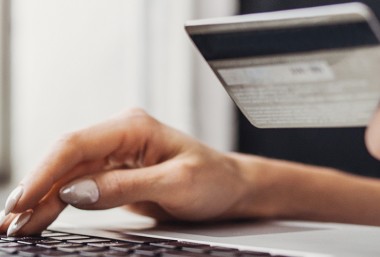Online shopping platforms: could they become liable for counterfeit goods sold by third parties on their platforms? Under legislation introduced to the US House of Representatives in early March this year, that’s a distinct possibility.
The somewhat wordy name of the legislation is the Stopping Harmful Offers on Platforms by Screening Against Fakes in E-commerce Act of 2020, but it comes with the nifty acronym ‘the SHOP SAFE Act’. The SHOP SAFE bill’s purpose is to prevent the sale of counterfeit goods that pose a risk to consumer health and safety, by creating stricter compliance rules on operators of online shopping platforms.
The proposed rules would mean that third party online shopping platforms, like eBay, Amazon, Facebook Marketplace, Instagram and Etsy, may be liable for counterfeit goods sold by third parties on their platforms unless they comply with a vetting process prescribed in the SHOP SAFE bill. The SHOP SAFE bill also has an extraterritorial reach. Under the SHOP SAFE bill, an ‘electronic commerce platform’ is defined as any online shopping platform that allows third parties to sell goods to consumers located in the US. This could include third party online shopping platforms outside of the US, such as Alibaba.
Goods that pose a public health and safety risk
The concerning increase in counterfeit products that flout regulatory processes and pose a significant risk to consumer health and safety is one of the policy considerations driving the SHOP SAFE bill. They include dangerously non-compliant counterfeit products, such as children’s car seats and electronics that are prone to self-combustion, which have reportedly been sold to US consumers via online shopping platforms.[1]
The SHOP SAFE bill has defined ‘goods that implicate health and safety’ as goods which can lead to illness, disease, injury, serious adverse event, allergic reaction or death if produced without compliance with applicable regulations. Other products that fall into this category include counterfeit pharmaceuticals, vitamin and mineral supplements and health and fitness supplements.
The new rules proposed under the SHOP SAFE bill
If the SHOP SAFE bill is passed, online shopping platforms will be liable to civil action under the US Trade mark Act 1946 for any counterfeit product sold by a third party on their platform unless the platform follows a proposed seller vetting process.
The seller vetting process proposed would require online shopping platforms to:
- verify through government identification and other reliable documentation the seller’s identity, place of business, and contact information;
- require the seller to verify and attest that its goods are not counterfeit;
- require as a condition of use of the platform that the seller:
- agrees not to sell counterfeit goods on the platform; and
- consents to being sued in under US law for any claims related to the seller’s participation on the platform;
- clearly display on the platform the seller’s identity, location, and contact information; where the goods are made; and where the goods will be shipped from;
- require sellers to use images that the seller owns or has permission to use and that accurately depict the actual goods offered for sale;
- use technology to screen goods for counterfeit trade marks before allowing the goods to be displayed for sale to the public;
- have a timely takedown process for removing listings for counterfeit goods;
- remove sellers that have listed or sold counterfeit goods more than three times;
- screen sellers to prevent removed sellers from re-joining or remaining on the platform under a different identity or alias;
- share an infringing seller’s identity and contact information with law enforcement and, upon request, the owner of the infringed registered trade mark.
In short, the SHOP SAFE bill would bring in a significant level of vetting, transparency, and hopefully traceability for those selling via online platforms.
Implications for online shopping platforms
If an online shopping platform fails to meet the best practice requirements, they will be liable for the following civil remedies under the US Trade Mark Act:
- Recovery of any profits made by the infringer.
- Payment of damages sustained by the trade mark owner.
- Payment of other parties legal costs [2].
These potentially hefty penalties for non-compliance will benefit brand owners, but may not be so welcome by online shopping platforms.
Response from online shopping platforms
At this stage, there does not appear to have been significant pushback from any of the leading online shopping platforms, despite the onerous requirements posed by the SHOP SAFE bill. However, this may change as the bill progresses - and there is a long way to go. The bill is currently with the House Committee on the Judiciary, which may hold hearings to collect comments on the bill from relevant industry bodies, interested citizens and/or key executive branch agencies. It is at this stage that online shopping platforms may be invited to provide comments on the bill. The Committee may then make amendments to the bill to reflect feedback received at a hearing. If the bill passes through the Committee on the Judiciary, it will be passed on to the House for debate, and then to the Senate, and ultimately to the President. Amendments can be made to the bill at each stage of this process.
Amazon, one of the largest US online shopping platforms, has previously said that its anti-counterfeiting measures are ‘best in class’, but also recognises that more could be done.[3] Last year Amazon disclosed in its annual report that it may not be able to prevent counterfeit sales on its platform. Under the heading ‘risk factors’, Amazon made the following statement:
“We also may be unable to prevent sellers in our stores or through other stores from selling unlawful, counterfeit, pirated, or stolen goods, selling goods in an unlawful or unethical manner, violating the proprietary rights of others, or otherwise violating our policies.”[4]
What’s the position in New Zealand?
Currently, New Zealand doesn’t have a comparable set of vetting requirements that an online platform like Trade Me has to follow. There is no equivalent legislation in New Zealand either before Parliament or in the pipeline. However, what happens in the US and Australia can sometimes influence where our laws may go. This is particularly so when there is a review underway of New Zealand Copyright law, and policy makers will be attuned to overseas developments in this space.
We’ll examine the position in New Zealand and some of the obligations in our intellectual property legislation that impose some compliance obligations on third party web platforms in our next article.
Next stages
In the meantime, the SHOP SAFE bill is still in its early stages and we will keep you updated on its progress.
If you have any questions about the SHOP SAFE bill, or any issues relating to the sale of counterfeit goods that are causing problems for your business both in New Zealand and around the word, please get in touch with us and we’ll let you know how we can help.


